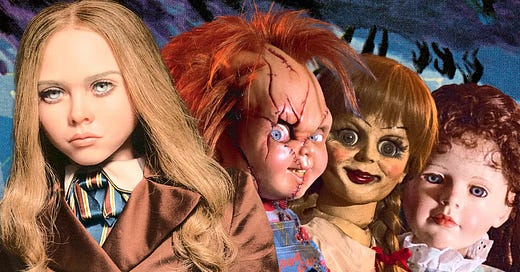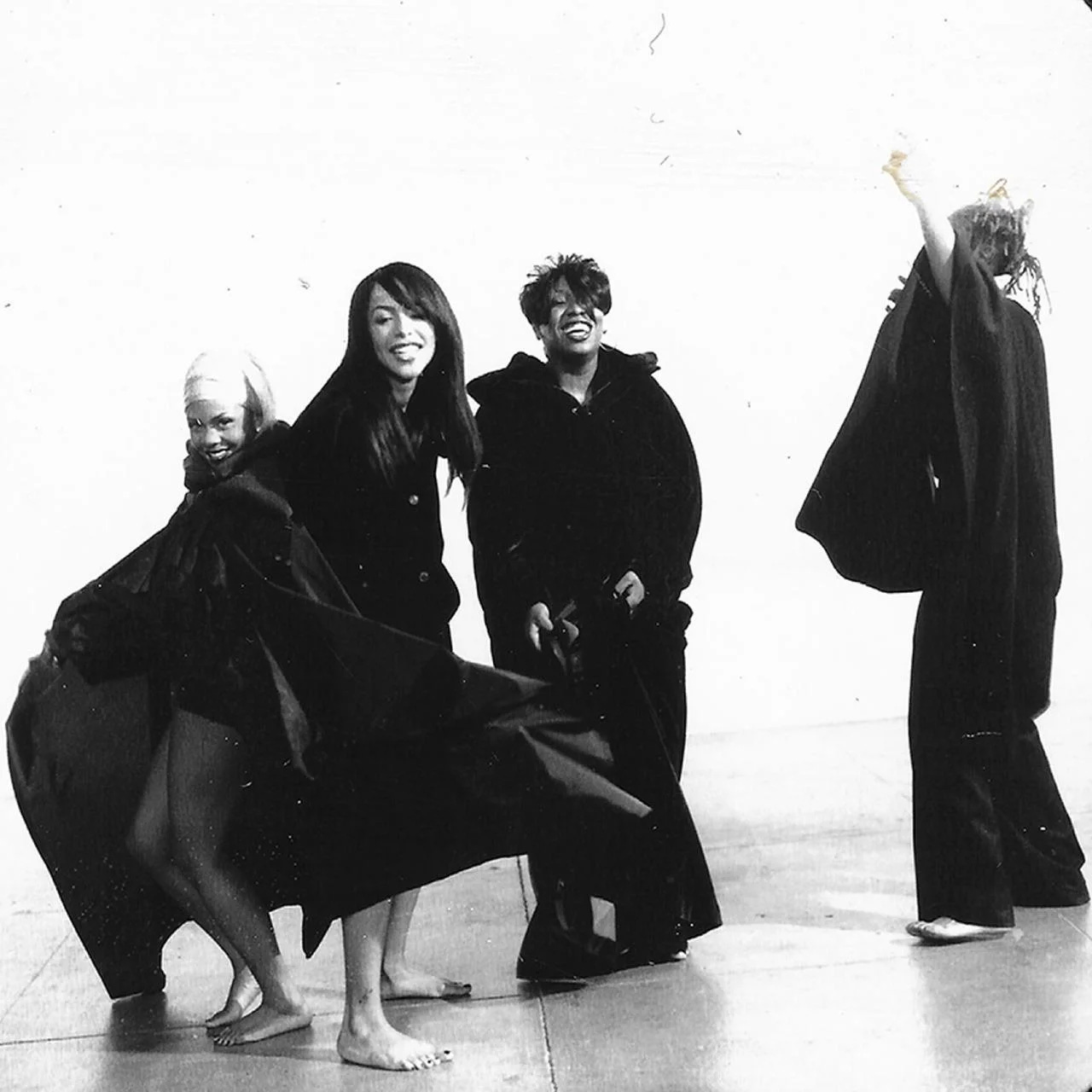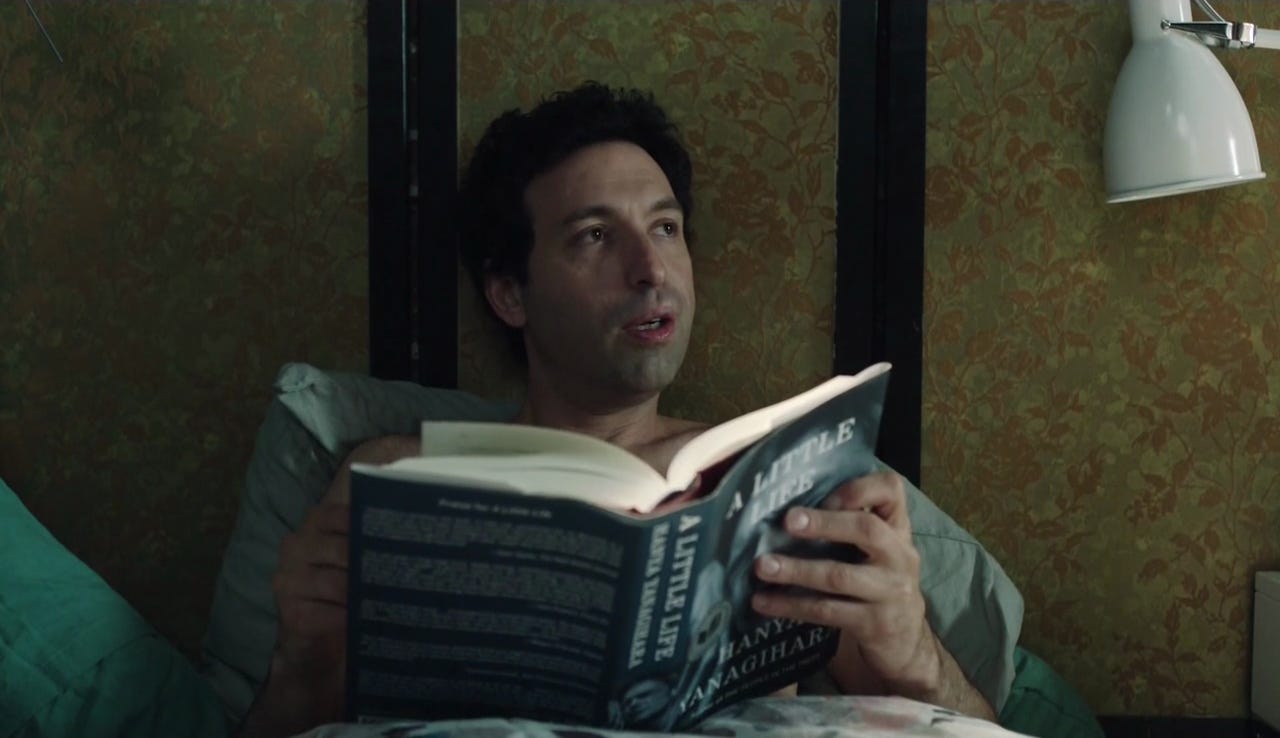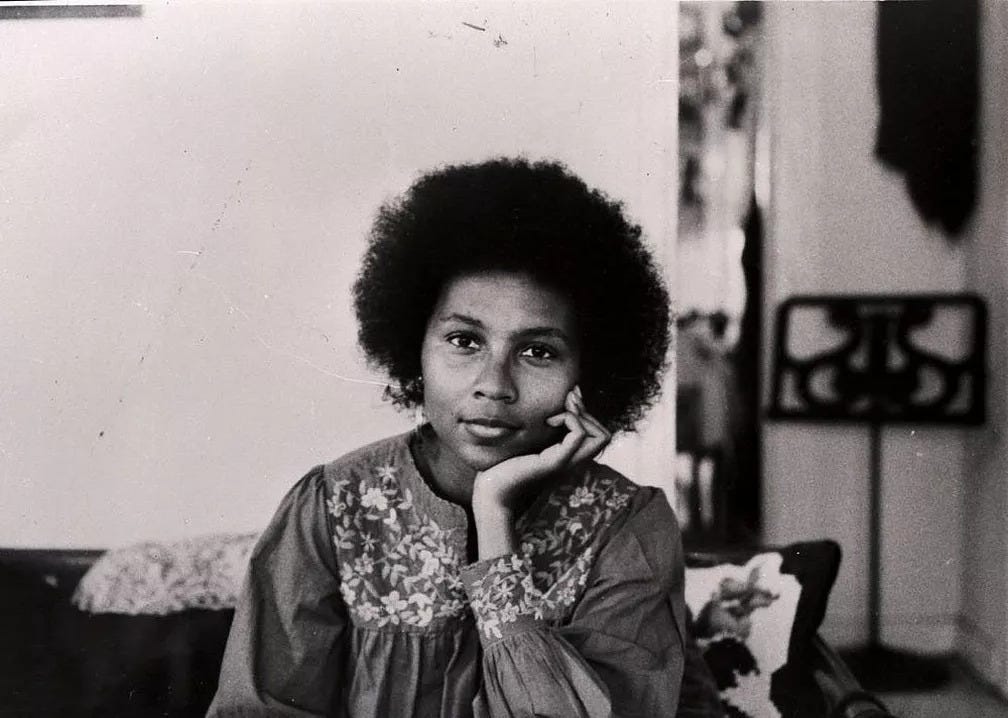One of the most electrifying anchors of the M3GAN promotional cycle, beyond the flash mobs of true-to-life robo-dolls, the flurry of Allison William’s profiles and that Drew Barrymore interview, is the musical score. Upon hearing the cut of Taylor Swift’s ‘It’s Nice To Have A Friend’ in the trailer, I was startled. In 2019, when I first listened to the song, it felt misplaced on the already bloated Lover and served as an easy skip against the stadium-ready synths that populated the album. Retrospectively, as my friend Michael put it, the song was more in the universe of folklore, elementary and ringing with a childish innocence. However, isolated in the movie commercial, I felt differently than how I did in 2019. The lyrics are slight and nonspecific, allowing you to cast your own experience onto it. Swift’s imagery evokes rudimentary memories of friendship through motifs of note-passing, video games and sleeping in tents. It’s not the most colourful display of her writing talent but it’s intentionally unembellished, harkening back to a quaint adolescence. The chorus, like all great choruses, is simple, sticky and easy to sing along to. It’s nice to have a friend, it’s nice to have a friend. Taylor, I happen to agree.
Swift’s emphasis on childhood friendship and its restorative power is in conversation with bell hooks’s chapter on friendship in her essential All About Love: New Visions. I had seen the bold red book on many friends’ Instagram stories, Goodreads recommendations, staff picks shelves in McNally Jackson and on many #BookTok reviews. Despite this exposure, I never felt a need to read it. I thought I knew everything there was to know about love. I had my own experiences with love. I had my parents’ affectionate relationship to mimic. I had Adele’s 25 to listen to. I had Love & Basketball to watch. I had Michelle and Barack’s anniversary posts to repost. I had Normal People to read and stream. I had Lemonade. I had Moonstruck and Moonlight. And yet, after I randomly purchased All About Love, I found myself enraptured by hooks’s teachings that exposed how much more there was for me to learn.
All About Love is a primer on all matters of the heart. In it, bell hooks unearths an education on the economy of love. The love she details is not limited to romance as she walks the reader through the fundamentals of love in situations surrounding love of self, love of work, loss of love, and - my favourite chapter - friendship: “Many of us learn as children that friendship should never be seen as just as important as family ties. However, friendship is the place in which a great majority of us have our first glimpse of redemptive love and caring community.” As a culture, there is an outsized emphasis on first kisses and first crushes but little on our first friends. I vaguely remember my first kiss but I can tell you everything about my first best friend. I recall vividly our collective eagerness to play Diablo on his shitty, basement computer after school and how it felt when he introduced me to Lil’ Kim’s Big Momma Thang - a cultural awakening for young Brendon. “Learning to love in friendships empowers us in ways that enable us to bring this love to other interactions with family or with romantic bonds.” hooks spilled with that one and, to any future/current/hidden lovers reading this, giving the gift of Lil’ Kim is how I best like to receive love.
Hanya Yanagihara’s A Little Life offers a similar argument for friendship as a vehicle of love when justifying Jude and Willem’s partnership: “Why wasn’t friendship as good as a relationship? Why wasn’t it even better? It was two people who remained together, day after day, bound not by sex or physical attraction or money or children or property, but only by the shared agreement to keep going, the mutual dedication to a union that could never be codified.” As an admirer of the novel, this is perhaps why the four-hour, Dutch theatrical adaptation of the novel fell flat for me. The novel, despite its gruesome pits and frequent scenes of self-mutilation, beautifully illustrates what bell hooks delicately outlines in All About Love. Within its 700 and something pages, Yanahigara takes her time stairstepping the reader through the intricacies of Willem and Jude’s friendship and the resin that bonds them. This history is lost in the strenuous stage adaptation. Although Jude’s friends display a high degree of care for their troubled bestie, when juxtaposed against the dramatized trauma, their service seems guided by a flat obligation rather than an unconditional commitment. Caring for Jude appears to be a chore. For a work that is so vehemently defended as one of the great depictions of life-long friendship, this amounts to an utter failure of translation.
A more recent achievement in fiction that emboldens the love of true friendship is Gabrielle Zevin’s Tomorrow and Tomorrow and Tomorrow. I was avoiding reading this book as I was told it was “about video games.“ And, as Plato said, ‘Baddies don’t play games’ Losing myself in video games is an integral plot point in the making of Brendeezy, from spending my hard-earned cash from a Tim Horton’s paycheck on an N64 all the way to winning an Xbox 360 in a frosh week dance off in university. And yet, as I aged, like my testicles and voice, my interest in gaming dropped. Despite the lingering guilt from quitting one of my hobbies, I could not ignore Tomorrow and Tomorrow and Tomorrow when it surfaced on everyone’s year-end list. F.O.M.O. and a v-aesthetic cover compelled me to purchase it late in 2022, enabling it to become the first book I finished in 2023. The novel depicts a wondrous friendship between Sam and Sadie, two nerdy (and lowkey unlikable) children who meet in a hospital game room. As life marches on, they reconnect through a creative partnership that harnesses their genius to script, design and launch video games to critical acclaim. Zevin animates decades of their friendship through career successes, tense periods of “no contact” and imaginative world-building and collaboration. All of this is done masterfully with a decadent share of “will they? won’t they?” energy to keep the reader hooked. Surmounting satisfaction, this novel reminded me that lasting friendships are nonlinear and full of moments of brightness to offset the dark. By compounding a significant component of the protagonists’ lives into 400 pages, I was reassured that the fleeting, petty tussles that can feel catastrophic in the moment are mere specks against a relationship meant to last. In many (frustrating) moments of the novel, there were scenes where I thought it was ‘curtains’ for Sam and Sadie’s friendship but their commitment to each other withstood my assumptions. They held on. They too possessed the “shared agreement to keep going” that Yanagihara wrote about.
In wedded relationships we have divorce to unbind us from our loved ones but in friendship there is no substitute. Even after separation, the bond remains undead. One of my favourite Sheila Heti quotes unpacks this bond and what is needed to make relationships last. Heti determines that a “relationship is a delusion between two people… And when one person stops imagining all this, basically that’s when the whole thing falls apart.” Heti implores that delusion is a compulsory component in successful relationships - of friends, of romance, of love. And, lucky for me, all my friends are utterly, helplessly delusional.
What I admired most about bell hooks’s definition of love was her thinking that love should be seen as a verb and not as a noun. To hooks, love is an intentional act, something you do rather than something that inhabits you. Due to this, hooks rejects the idea of ‘falling in love’ as true love must be an active choice. To me, this perspective was kind of major. I don’t want someone to love me against their own will, against their own agency - although, I do have that effect. It is much more romantic and purposeful to actively choose to commit to someone. There’s a reason why all of the love languages are actions and not feelings. You choose to spend QUALITY TIME with someone. You choose (with consent!) to PHYSICALLY TOUCH someone. You choose to GIFT me money in my Venmo account (or become a paid subscriber 😉)! Passion and affection can be felt but true love is a visible practice that is undeniable when confronted.
The women aforementioned call us to act and love fearlessly in our friendships. Reading this is an act of love. Love for me but also love for yourself. If you’re reading this, you’re likely my friend. And if you’re my friend, it’s likely that I love you. Let’s stay in this delusion for a while longer.
Happy Valentine’s Day and welcome to LOOSEY.










Yes Brendon! 🙌 🙌